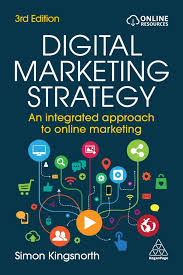The Power of Content Marketing Agencies
In today’s digital age, content is king. Businesses around the world are recognising the importance of creating high-quality, engaging content to attract and retain customers. This is where content marketing agencies come into play.
A content marketing agency is a specialised firm that focuses on creating and distributing valuable, relevant, and consistent content to attract a targeted audience. These agencies work closely with businesses to develop tailored content strategies that align with their goals and objectives.
One of the key advantages of partnering with a content marketing agency is their expertise in producing compelling content that resonates with the target audience. From blog posts and social media updates to videos and infographics, these agencies have the skills and resources to create a wide range of content types that drive engagement and build brand awareness.
Furthermore, content marketing agencies have a deep understanding of SEO (Search Engine Optimisation) best practices, helping businesses improve their online visibility and reach a larger audience. By incorporating relevant keywords and optimising content for search engines, these agencies can enhance a company’s online presence and drive organic traffic to their website.
Another benefit of working with a content marketing agency is their ability to track and measure the performance of your content initiatives. Through analytics tools and data analysis, these agencies can provide valuable insights into how your content is performing, allowing you to make informed decisions and refine your strategy for optimal results.
Overall, the role of a content marketing agency is invaluable in helping businesses create meaningful connections with their target audience through strategic, data-driven content initiatives. By leveraging the expertise and resources of these agencies, businesses can elevate their brand presence, drive customer engagement, and ultimately achieve their marketing objectives in today’s competitive digital landscape.
Top 8 FAQs About Content Marketing Agencies: Starting, Hiring, and Succeeding
- How do I start a content agency?
- What should I look for in a content marketing agency?
- Why should I hire a content marketing agency?
- How do I start a content marketing agency?
- How do content agencies get clients?
- What are the 4 main categories of content marketing?
- What companies are good at content marketing?
- What does a content marketing agency do?
How do I start a content agency?
Starting a content agency requires careful planning and strategic execution. To begin, it is essential to define your niche and target audience to differentiate your agency in the competitive market. Conduct thorough market research to understand industry trends and identify potential clients. Next, establish a strong brand identity and develop a portfolio showcasing your expertise in content creation, strategy, and marketing. Building a talented team of writers, designers, and marketers is crucial for delivering high-quality services to clients. Additionally, invest in technology and tools that streamline content production and analytics. Networking with industry professionals and actively promoting your agency through digital channels will help attract clients and grow your business effectively.
What should I look for in a content marketing agency?
When considering a content marketing agency, it is essential to look for certain key factors to ensure you are partnering with the right team for your business needs. Firstly, expertise and experience in creating engaging and relevant content across various platforms are crucial. A reputable agency should have a proven track record of delivering successful content strategies that align with your brand’s goals. Additionally, consider their knowledge of SEO best practices and their ability to measure and analyse the performance of your content. Transparency, communication, and a collaborative approach are also vital aspects to look for in a content marketing agency, as they will help foster a strong working relationship and drive effective results for your business.
Why should I hire a content marketing agency?
When considering why to hire a content marketing agency, it’s important to recognise the specialised expertise and resources they bring to the table. Content marketing agencies have a deep understanding of creating and distributing engaging content that resonates with your target audience. By partnering with a content marketing agency, you can benefit from their strategic approach to content creation, tailored to your specific goals and objectives. These agencies also possess the necessary skills in SEO best practices, enabling your business to improve online visibility and drive organic traffic. Ultimately, hiring a content marketing agency allows you to leverage their knowledge and experience to enhance your brand presence, engage customers effectively, and achieve tangible results in the competitive digital landscape.
How do I start a content marketing agency?
Starting a content marketing agency requires careful planning and strategic thinking. To begin, it is essential to define your niche and target market, identifying the specific industries or businesses you aim to serve with your content services. Next, focus on building a strong portfolio showcasing your expertise in content creation, strategy development, and digital marketing. Establishing a network of industry contacts and potential clients can also help kickstart your agency’s growth. Additionally, investing in the right tools and technologies to streamline content production and distribution processes is crucial for delivering high-quality results to your clients. Finally, staying updated on industry trends and continuously honing your skills will ensure your content marketing agency remains competitive and successful in the long run.
How do content agencies get clients?
Content marketing agencies employ various strategies to acquire clients and build lasting relationships. Firstly, many agencies leverage their online presence by showcasing their expertise through informative blogs, case studies, and social media content. This helps attract potential clients who are seeking solutions to their content marketing needs. Additionally, content agencies often engage in networking events, industry conferences, and partnerships with other businesses to expand their reach and connect with potential clients. Referrals from satisfied customers also play a significant role in bringing in new business for content agencies. By demonstrating their capabilities, delivering results, and fostering trust with clients, content agencies can effectively acquire clients and establish themselves as trusted partners in the ever-evolving world of digital marketing.
What are the 4 main categories of content marketing?
Content marketing encompasses a diverse range of strategies and approaches, with the 4 main categories being: written content, visual content, video content, and interactive content. Written content includes articles, blog posts, and whitepapers that aim to inform and educate audiences. Visual content such as infographics and images captivates viewers with compelling visuals. Video content is increasingly popular for its ability to engage and entertain audiences effectively. Interactive content like quizzes and surveys encourages active participation from users, enhancing their overall experience. Each category plays a unique role in a comprehensive content marketing strategy, catering to different audience preferences and driving engagement across various digital platforms.
What companies are good at content marketing?
When it comes to companies excelling in content marketing, several industry leaders stand out for their innovative and effective strategies. Brands like Red Bull, Coca-Cola, and HubSpot are often praised for their exceptional content marketing efforts. Red Bull, known for its high-energy brand image, has successfully leveraged content to engage its audience through extreme sports events and adrenaline-fueled storytelling. Coca-Cola’s “Content 2020” strategy focuses on creating liquid content that resonates with consumers on a personal level, fostering emotional connections with the brand. HubSpot, a pioneer in inbound marketing, provides valuable resources and educational content to help businesses succeed in the digital realm. These companies serve as prime examples of how strategic content marketing can drive brand awareness, customer loyalty, and business growth.
What does a content marketing agency do?
A content marketing agency specialises in creating and distributing valuable, relevant, and consistent content to attract and engage a targeted audience on behalf of businesses. These agencies work closely with clients to develop customised content strategies that align with their marketing goals. From crafting compelling blog posts and social media updates to producing engaging videos and infographics, content marketing agencies utilise their expertise to enhance brand visibility, drive customer engagement, and ultimately help businesses achieve their marketing objectives in the digital landscape.




